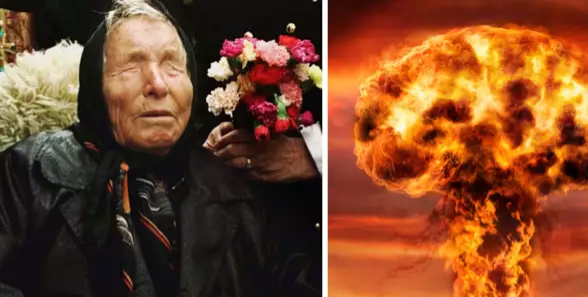The crime drama series Tokyo Vice, inspired by Jake Adelstein’s memoir, brings to life the seedy yet fascinating underworld of Tokyo in the 1990s. A meticulous exploration of crime, journalism, and cultural duality, this HBO Max series has garnered attention for its authenticity, performances, and narrative depth. Directed by Michael Mann and created by J.T. Rogers, Tokyo Vice balances suspense with a thoughtful portrayal of complex characters and societal issues. Let’s delve into what makes this series stand out.
The Premise: A Journalist’s Journey into the Shadows
Tokyo Vice follows Jake Adelstein, an ambitious American journalist (played by Ansel Elgort), who lands a job at a prestigious Japanese newspaper. As the first foreigner to work in this competitive and insular environment, Jake faces professional and cultural challenges. However, it’s his determination to uncover the truth that plunges him into Tokyo’s criminal underworld.
From the neon-lit streets to the labyrinthine alleys, the show masterfully captures Tokyo’s contrasting allure and danger. Jake’s encounters with yakuza boss Tozawa (Ayumi Tanida) and Tokyo Metropolitan Police Detective Katagiri (Ken Watanabe) underscore the uneasy alliances that define his journey. These relationships form the crux of a story where survival depends on trust, skill, and constant vigilance.
Authenticity and Cultural Depth
One of Tokyo Vice’s strongest attributes is its authentic portrayal of Japanese culture and the yakuza world. The series does not shy away from showcasing the societal norms and unspoken rules that shape its characters’ lives.
The newsroom scenes highlight the rigour of Japanese journalism, reflecting the intense hierarchy and expectations that Jake must navigate. Meanwhile, the depiction of the yakuza provides a nuanced look at their operations and the moral grey areas they inhabit. This balanced approach avoids sensationalism, presenting the yakuza not just as villains but as individuals bound by their own codes and vulnerabilities.
The use of Japanese dialogue, alongside English, further enhances the series’ realism. It respects its setting by immersing viewers in the language and culture, which is a rarity in many Western adaptations of Asian themes.
Strong Performances and Character Development
The cast of Tokyo Vice delivers compelling performances that anchor the narrative. Ansel Elgort portrays Jake as a mix of naïveté and tenacity, evolving from a wide-eyed foreigner to a determined investigator willing to take risks. Ken Watanabe’s Detective Katagiri provides a grounding presence, embodying wisdom and stoic resolve in his mission to protect the city.
Rinko Kikuchi as Eimi, a senior editor, and Rachel Keller as Samantha, an expat navigating her own precarious existence in Tokyo, add layers to the story. Their characters represent different facets of ambition, survival, and identity, creating a rich tapestry of interconnected lives.
The antagonists, particularly Tozawa, bring menace and unpredictability to the plot, ensuring tension remains high throughout.
 Drive-Away Dolls Review: A Quirky Comedy Adventure
Drive-Away Dolls Review: A Quirky Comedy Adventure
 Bodies Bodies Bodies Review: A Clever Satirical Thriller
Bodies Bodies Bodies Review: A Clever Satirical Thriller
 Salman Khan Steps Out to Vote Amid Heightened Security and Death Threats
Salman Khan Steps Out to Vote Amid Heightened Security and Death Threats
 Vicky Kaushal’s Stunning Transformation as Parashurama in Mahavatar First Look
Vicky Kaushal’s Stunning Transformation as Parashurama in Mahavatar First Look
 Molly Ringwald Net Worth: How the ’80s Icon Built Her Wealth
Molly Ringwald Net Worth: How the ’80s Icon Built Her Wealth





Cinematography and Atmosphere
The visual style of Tokyo Vice deserves special mention. Michael Mann’s involvement in the pilot episode sets the tone with moody, cinematic flair. The series is a feast for the senses, capturing Tokyo’s dichotomy: its vibrant nightlife juxtaposed with the shadowy corners where danger lurks.
The neon-drenched aesthetic, combined with meticulous set design, immerses viewers in the city’s pulse. From bustling izakayas to backroom meetings in smoke-filled parlours, every scene contributes to the atmosphere, making Tokyo as much a character as any of the leads.
Strengths and Weaknesses
Tokyo Vice excels in its storytelling, attention to detail, and character depth. However, some viewers may find the pacing uneven, especially in the earlier episodes. While the slower moments contribute to world-building, they can occasionally detract from the narrative momentum. Additionally, the show leaves several plot threads unresolved, likely setting up future seasons but leaving immediate questions unanswered.
Conclusion: A Riveting Crime Drama Worth Watching
Tokyo Vice is a gripping series that combines investigative journalism with the allure of crime drama, all set against the backdrop of Tokyo’s vibrant yet perilous streets. Its commitment to authenticity, strong performances, and immersive visuals make it a standout in its genre. While not without its flaws, the series offers a compelling look at cultural intersections and the blurred lines between right and wrong.
For fans of gritty storytelling and atmospheric drama, Tokyo Vice is an unmissable experience—a show that not only entertains but also provides a rare glimpse into the complexities of a city and its darker layers.
Click here to know more.






